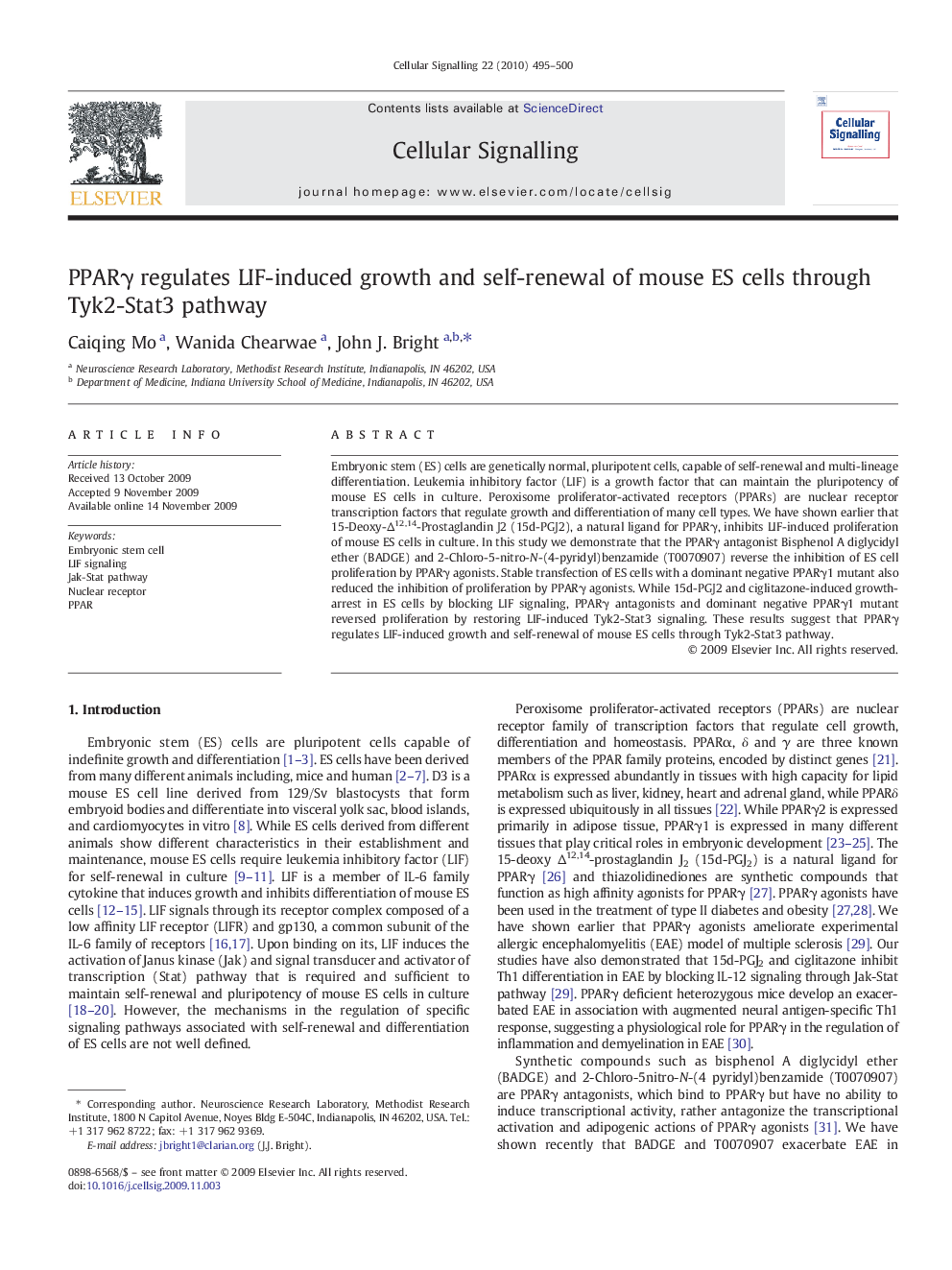| Article ID | Journal | Published Year | Pages | File Type |
|---|---|---|---|---|
| 10815740 | Cellular Signalling | 2010 | 6 Pages |
Abstract
Embryonic stem (ES) cells are genetically normal, pluripotent cells, capable of self-renewal and multi-lineage differentiation. Leukemia inhibitory factor (LIF) is a growth factor that can maintain the pluripotency of mouse ES cells in culture. Peroxisome proliferator-activated receptors (PPARs) are nuclear receptor transcription factors that regulate growth and differentiation of many cell types. We have shown earlier that 15-Deoxy-â12,14-Prostaglandin J2 (15d-PGJ2), a natural ligand for PPARγ, inhibits LIF-induced proliferation of mouse ES cells in culture. In this study we demonstrate that the PPARγ antagonist Bisphenol A diglycidyl ether (BADGE) and 2-Chloro-5-nitro-N-(4-pyridyl)benzamide (T0070907) reverse the inhibition of ES cell proliferation by PPARγ agonists. Stable transfection of ES cells with a dominant negative PPARγ1 mutant also reduced the inhibition of proliferation by PPARγ agonists. While 15d-PGJ2 and ciglitazone-induced growth-arrest in ES cells by blocking LIF signaling, PPARγ antagonists and dominant negative PPARγ1 mutant reversed proliferation by restoring LIF-induced Tyk2-Stat3 signaling. These results suggest that PPARγ regulates LIF-induced growth and self-renewal of mouse ES cells through Tyk2-Stat3 pathway.
Related Topics
Life Sciences
Biochemistry, Genetics and Molecular Biology
Biochemistry
Authors
Caiqing Mo, Wanida Chearwae, John J. Bright,
